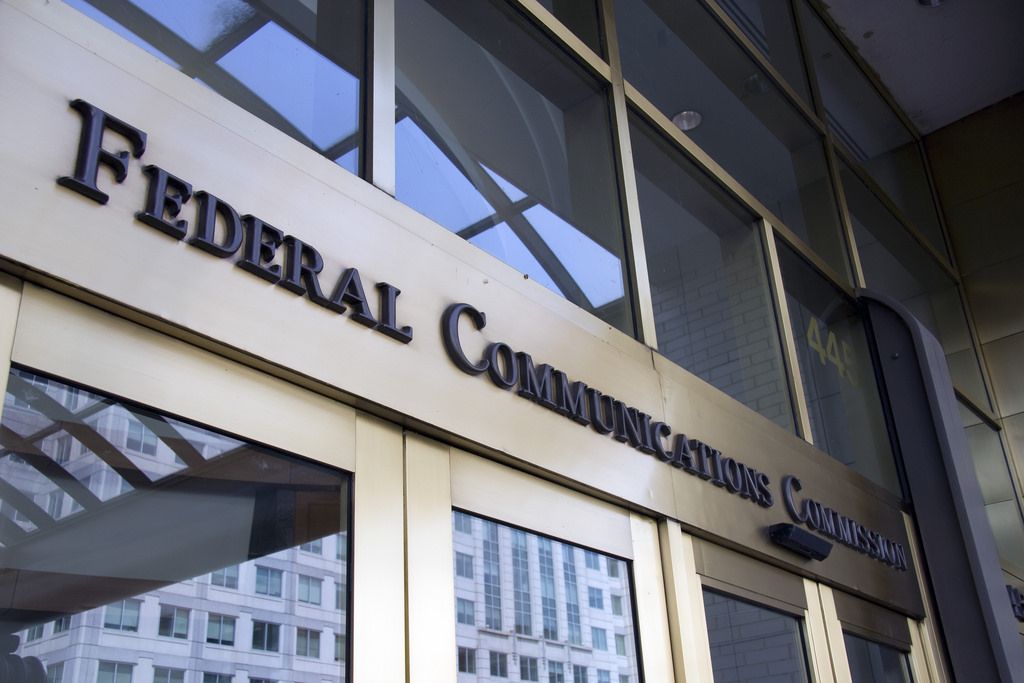
The Federal Communications Commission has made it easier for researchers, journalists and citizens to track dark campaign contributions by expanding its online political ad database. (Photo: US Government works via Flickr)
When Yahoo! confirmed that it had experienced a massive online attack from hackers who stole personal information from more than 500 million people — including names, emails and phone numbers — it revealed a disturbing truth about our digital media system. Deep into its core, the internet is being transformed into a powerful, Big-Data-driven commercial surveillance apparatus.
There is a digital data “arms race” underway in which corporate giants such as Google and Facebook — and now AT&T, Comcast and Verizon — are assembling far-reaching dossiers on individuals. Nearly everything we do — online and off — is being swept up by a sophisticated and largely stealth data-mining machine. Our actions, behaviors, income, race, political interests and more are continually being scrutinized and fed into supercomputers that then make millisecond determinations about each of us (“can pay high rate of credit card interest,” “candidate for payday loan,” “worried about cancer or other illness,” “a teen that likes junk food,” “has this political leaning,” etc.).
The surveillance system deliberately placed at the core of the global internet spans our use of social media, search engines, video channels, email, apps and — through our adoption of mobile phones — even what we do in stores or on the street. It is also doing much more than merely delivering ads. It’s a complex and far-reaching system that incorporates a host of features, such as predictive algorithms, that is especially designed to exert unprecedented, micro-targeted influence on individuals and groups.
What the Yahoo! break-in demonstrated — in addition to the lack of cyber security safeguards — is that the unquenchable thirst to capture every bit of our information knows no bounds, largely because by opposing legislation or federal rules designed to protect consumer privacy, these same digital companies have successfully escaped any meaningful regulatory scrutiny.
But that could soon change because of net neutrality. As a result of the populist uprising that stopped in its tracks plans by the phone and cable industry to control the internet’s future, the Federal Communications Commission (FCC) is poised to enact “Open Internet” rules that would require broadband internet service providers (ISPs) to respect privacy. Long-standing safeguards that have protected the privacy of phone conversations would be extended to cover our communications over broadband networks. Just as your phone company isn’t permitted to listen in on your calls, ISPs such as Comcast and AT&T would be prohibited from eavesdropping on what you do online unless it has first received your informed consent.
Under the FCC’s proposal, consumers would be able to decide (known as opt-in) whether an ISP could use their sensitive information on behalf of advertisers.
Naturally, this proposal has triggered a firestorm of opposition from the broadband ISP monopolists (who are still also fighting to overturn the commission’s net neutrality rules). That’s because the FCC proposal threatens to unravel their plans to rival Facebook and Google by assembling a vast array of new ways to gather personal information and sell it to the highest bidder (including collecting our data from PCs, mobile phones and TVs).
To advance their plans, companies such as AT&T, Comcast and Verizon have been busy buying data-targeting companies as well as developing deals with the most powerful data brokers. For example, we have recently witnessed a series of ISP digital data deals. Verizon — which is now poised to buy Yahoo! — swallowed up AOL, giving it access to a wealth of consumer information (including data from thousands of mobile apps). AT&T acquired DirecTV, and Comcast purchased digital ad companies Visible World and FreeWheel.
These and other ISPs are working closely with such consumer data powerhouses as Acxiom and Oracle. Illustrating the important role that capturing and “monetizing” our information now plays in our media system, Oracle — better known for its tech hardware and software — has now also become a leader in data profiling. Its “Oracle Data Cloud provides access to more than 2 billion global consumer profiles, 110 million US households, $3 trillion in consumer transactions and more than 1,500 data partners,” and offers 45,000 ready-made consumer profiles for targeting. Among its many partners are Verizon and Comcast.
Phone and cable companies believe they are unfairly being singled out for privacy rules because the FCC proposal would only affect ISPs and not the host of other internet companies that devour our data. Google and Facebook, for example, have built their businesses (which primarily depend on data-driven ad revenue) by thumbing their nose at privacy. They easily can do that because, unlike in the European Union, where privacy (or data protection, as it is called) is a “fundamental right,” there are few legal constraints in the US on how digital media and marketing companies can use consumer information.
But FCC chairman Tom Wheeler, who is spearheading the agency’s proposal, has explained why ISPs must be held to a higher standard when it comes to respecting the privacy of customer data. By providing our internet connections, companies like AT&T and Comcast know “when we are online, the websites we visit and the apps we use.” They can also “track our physical location throughout the day in real time” when we use our mobile phones. Moreover, we pay these ISPs hefty broadband subscriber fees. An ISP’s role should be to provide us with efficient and reasonably priced connections to the internet — not serve as a corporate spy that peers into our lives 24/7.
The phone and cable lobby has hired former Federal Trade Commission (FTC) Chairman Jon Leibowitz (D) and ex-Rep. Mary Bono Mack (R) to spearhead the campaign to kill the FCC’s privacy proposal. Their lobbying group argues that the privacy of Americans is already well-protected because of the work of the FTC.
But the opposite is actually the case. Because the FTC has basically been stripped of its ability to issue regulations (which has been the case since it challenged advertisers in the early 1980s), it has been powerless to stop the growing exploitation of the information collected from us by digital means. The Federal Communications Commission’s proposal would be the first time in the broadband era that the public would be given some rights over their data.
If the agency is successful, such a move might change what University of Pennsylvania researcher Joseph Turow found when he surveyed Americans about their views on privacy — that people are very aware that their information is gathered, but “resigned” to their inability to have any meaningful way to control the process.
Much more than privacy is at stake here. The forces of marketing, hyper-commercialism and massive data collection are shaping the fabric of our 21st-century media system. Its digital DNA has been designed to serve as a super-selling machine — promoting not only consumer products and entertainment fare, but also politicians and political ideas. Without sufficient safeguards, this system could foster discrimination, threaten environmental sustainability and ultimately undermine the democratic process.
One important way forward is for the United States — for the first time — to give people back some control over their information by enacting the FCC’s proposal. By limiting the power of big corporations to use the internet as a way to advance their own narrow economic interests, we will give ourselves more time to develop a true public vision for digital media.




